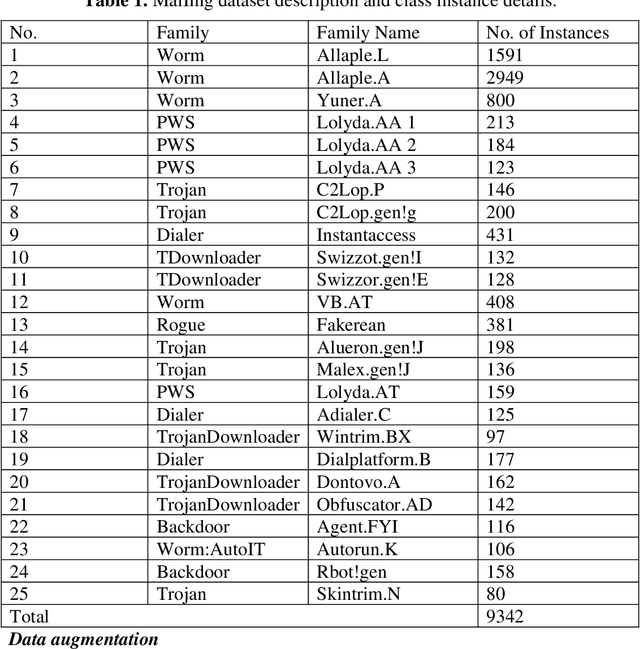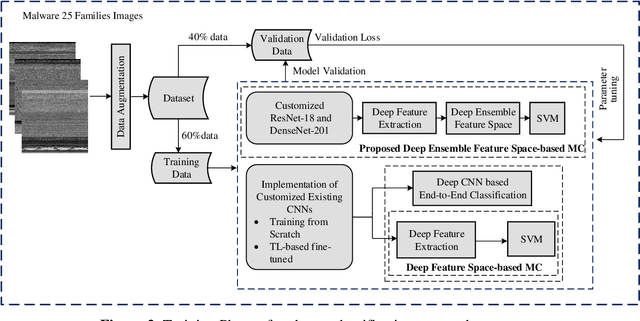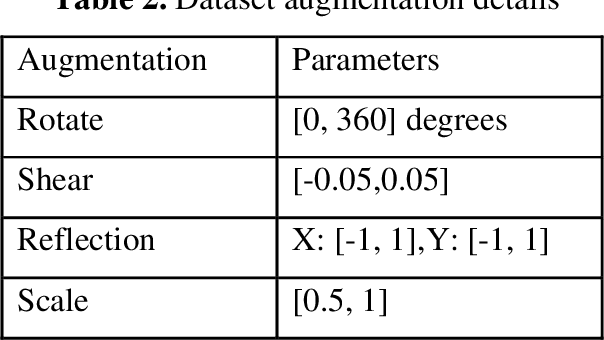Malware Classification Using Deep Boosted Learning
Paper and Code
Jul 08, 2021



Malicious activities in cyberspace have gone further than simply hacking machines and spreading viruses. It has become a challenge for a nations survival and hence has evolved to cyber warfare. Malware is a key component of cyber-crime, and its analysis is the first line of defence against attack. This work proposes a novel deep boosted hybrid learning-based malware classification framework and named as Deep boosted Feature Space-based Malware classification (DFS-MC). In the proposed framework, the discrimination power is enhanced by fusing the feature spaces of the best performing customized CNN architectures models and its discrimination by an SVM for classification. The discrimination capacity of the proposed classification framework is assessed by comparing it against the standard customized CNNs. The customized CNN models are implemented in two ways: softmax classifier and deep hybrid learning-based malware classification. In the hybrid learning, Deep features are extracted from customized CNN architectures and fed into the conventional machine learning classifier to improve the classification performance. We also introduced the concept of transfer learning in a customized CNN architecture based malware classification framework through fine-tuning. The performance of the proposed malware classification approaches are validated on the MalImg malware dataset using the hold-out cross-validation technique. Experimental comparisons were conducted by employing innovative, customized CNN, trained from scratch and fine-tuning the customized CNN using transfer learning. The proposed classification framework DFS-MC showed improved results, Accuracy: 98.61%, F-score: 0.96, Precision: 0.96, and Recall: 0.96.
 Add to Chrome
Add to Chrome Add to Firefox
Add to Firefox Add to Edge
Add to Edge